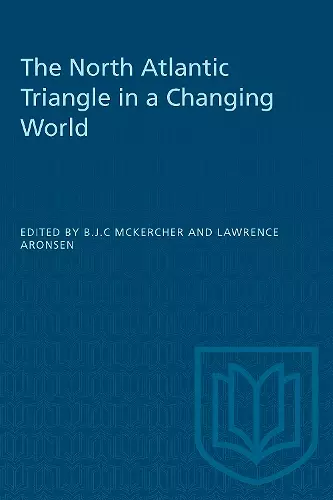The North Atlantic Triangle in a Changing World
BJC McKercher editor Lawrence Aronsen editor
Format:Paperback
Publisher:University of Toronto Press
Published:25th Mar '96
Currently unavailable, and unfortunately no date known when it will be back

The North Atlantic Powers – Britain, the United States, and Canada – constitute an important element in modern international history. They form a North Atlantic triangle which, despite an important French-speaking minority in Canada, is united by language, cultural, liberal political beliefs, and a common economic philosophy. However, there exist significant foreign-policy differences within the triangle which derive from dissimilar perceptions of threat, the influence of public opinion on government, and economic, financial, and other constraints. The course of this tripartite relationship has therefore been marked by fluidity and divergence and has changed according to the world circumstances. As the twentieth century began, Britain was the only global power; by the late 1950s the United States had emerged from isolation and, building on its leading international economic and financial position and its development of nuclear and conventional military strength, had replaced Britain as the only global power. Canada also underwent a transformation in 1903 the northern dominion remained firmly within the British Empire. Sixty years later, by a convoluted process, Canada achieved sovereignty in foreign policy, changed direction in economic orientation, and emerged as leading middle power. Ottawa had broken its colonial links with London and gravitated into the American orbit.
This book, by experts in Anglo-American-Canadian relations, examines North Atlantic triangle diplomacy from the Alaska boundary dispute to the Suez Crisis of 1956, providing an up-to-date assessment of this important configuration of powers in twentieth-century international history.
ISBN: 9780802069573
Dimensions: 229mm x 152mm x 23mm
Weight: 460g
304 pages